A Reason to Live: An Interview with Hae Sun
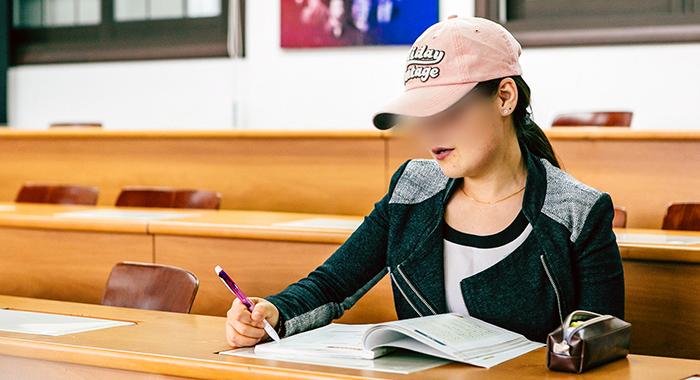
Hae Sun was rescued while hiding in China in 2013. Now safely resettled in South Korea, she attends a two-year college as a business/Chinese major and she just finished her first semester. Choosing to go to college was not an easy decision for her. She was adjusting to the many differences in South Korean society and dealing with loneliness, low self-esteem, and anxiety issues. But, ultimately her drive to pursue her dreams was stronger than the challenges she faced. Now, she’s excited to achieve the goals she has set out for herself.
“When I got my acceptance letter to a two-year college in South Korea, I thought of my mom who is still in North Korea. I wished she could’ve heard the good news and congratulated me. I haven’t heard from her since I left North Korea a few years ago. I don’t even know whether she is still alive. I know she would be very proud of me for attending college.” - Hae Sun
Our resettlement coordinator Jihyun recently met up with Hae Sun to see how she has been doing since starting college. Read their conversation below:
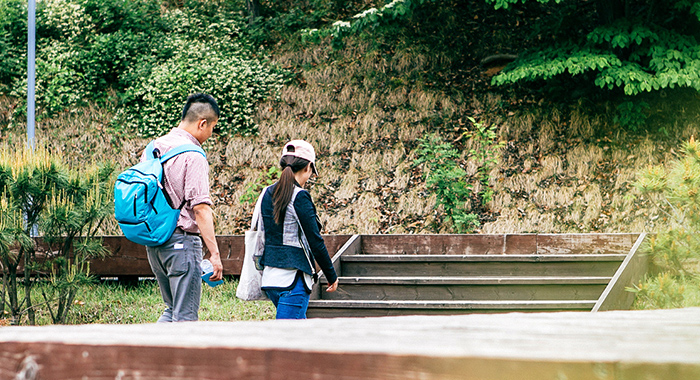
Jihyun: “How was your first semester?”
Hae Sun: It was not easy at all. In the beginning, I struggled so much. There were so many things my South Korean classmates easily understood that I didn’t because of the different education systems between North Korea and South Korea. I also didn’t study for more than 10 years because I didn’t get a proper middle school/high school education in North Korea and spent a long time hiding in China.
I didn’t do well for my midterms, but did better for my finals. Throughout the semester there were many moments when I really wanted to give up and drop out of school because studying was so hard and things were difficult for me, but I didn’t give up.
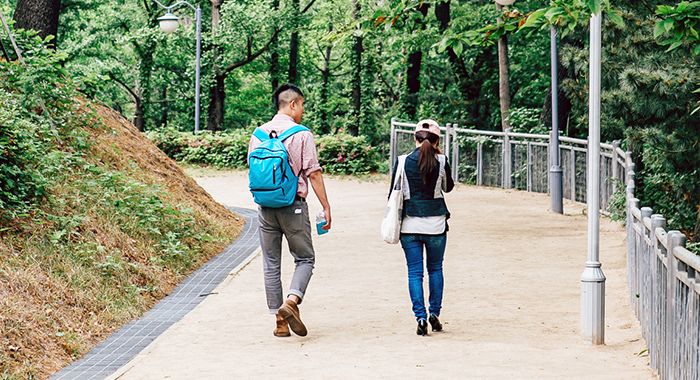
Jihyun: “Other than studying what else was difficult during your first semester?”
Hae Sun: Well, making friends in college was not easy. You know, I am at least 10 years older than most other freshmen. I am still afraid that they might not feel comfortable being around me because I am a lot older and culturally different from them. Some students have been so nice to me and I shouldn’t think that way, but I still get self-conscious about my age and background, which I know hinders me from getting close to them. Next semester I will try to be around other students more without worrying about my age and background.
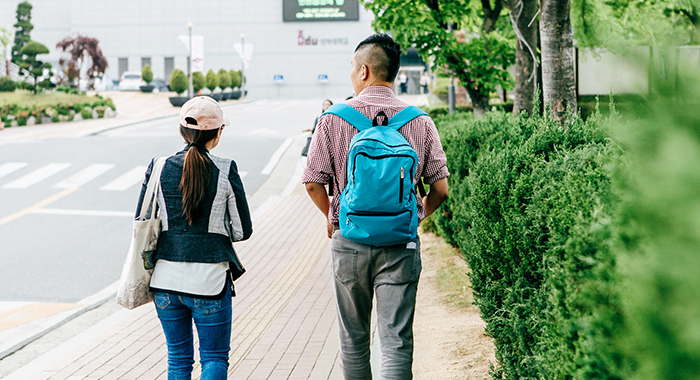
Jihyun: What was the best part of your first semester?
Hae Sun: I was able to clearly understand a lot of Chinese grammatical stuff, which I had struggled with for a while. I was hiding in China for a long time so I learned conversational Chinese through talking with Chinese people, but I never learned it in school, so there were still a lot of grammatical rules I didn’t understand. Since I started studying Chinese as my major, I have learned a lot of those rules. I am so so happy about it and thankful for my education.
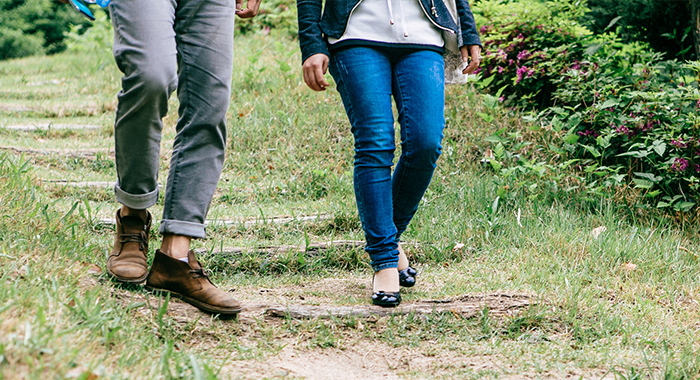
Jihyun: “What was one of new things you started doing after coming to South Korea?”
Hae Sun: Volunteer work to help people in need. In North Korea, I never thought of helping other people because I had so many difficulties then. I have been part of a group of volunteers for the past year that gives food to homeless people in train stations in Seoul. The group consists of young resettled North Korean refugees like me and South Korean college students.
Even after I resettled to South Korea, I didn’t think of helping others because I didn’t have a lot and thought I had to resettle successfully first. But while volunteering through the group, I have realized that I don’t need to have a lot of money or time to help other people.
Sharing what I have with others and helping them makes me happy now. In North Korea and China when I was always in need, I thought only receiving could make me happy, but now I know giving also makes me happy. That is why I do the outreach volunteer work for the homeless.
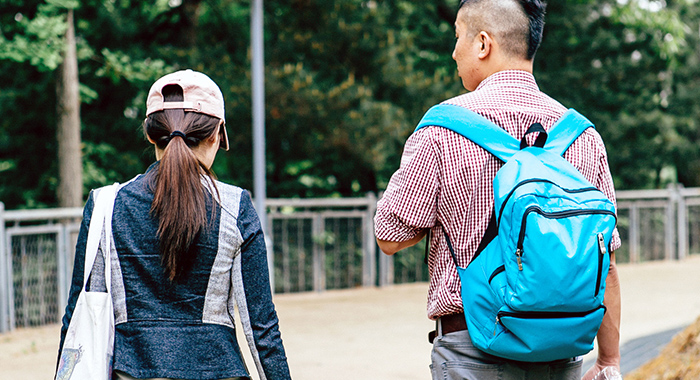
Jihyun: What were some of the difficulties you had when you first came to South Korea?
Hae Sun: Before I came to South Korea, I thought I would be fine communicating with people here because we speak the same language, but I was not aware of a lot of the differences between the South Korean language and the North Korean language because the two countries have been separated for almost 70 years.
At first I struggled a lot. There were many times when I either didn’t understand South Koreans or they didn’t understand me due to our different accents and words. Although there are still words and expressions I don’t completely understand, I am a lot more used to it than when I first came here. I have learned a lot of new words and expressions while working different jobs with South Koreans and through attending college here.
Actually at the beginning of this semester, I didn’t understand a lot of words that other students would use because I am even more unfamiliar with words young people use here. Still, I get confused about some South Korean expressions and words and sometimes I still don’t understand what my professors say. I used to get stressed out about it so much, but now I try to give myself more grace about my language issues. I mean I will keep learning new things and trying to get used to them for the rest of my life here. I will just face them instead of avoiding or getting stressed about them. That is why I am in college so that I can learn, right?
Another difficulty was loneliness…I still feel lonely from time to time. I really miss my family. I actually had depression when I first came to South Korea because of loneliness. Now I don’t have depression anymore because of new friends I have made since I came to South Korea. My church community has especially made me feel loved and encouraged and has been helping me overcome loneliness and depression.
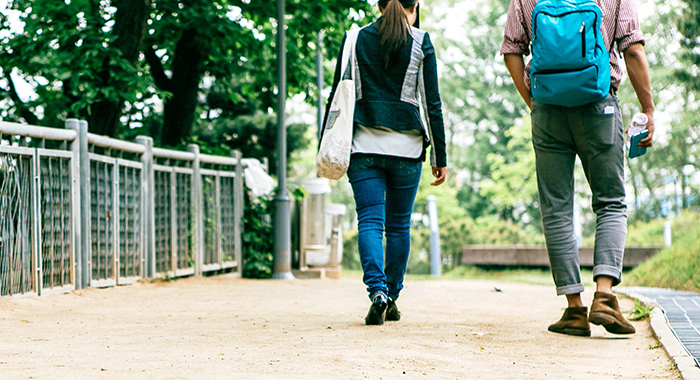
Jihyun: What is freedom to you?
Hae Sun: Freedom enables me to do what I want and visit the places and countries where I want to go as long as I have the willpower and make the effort. None of this was possible back in North Korea.
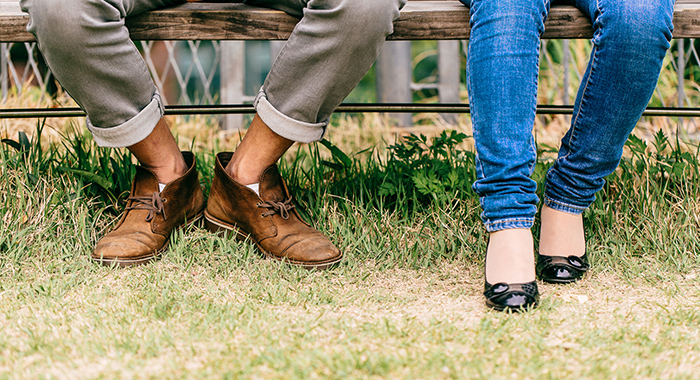
Jihyun: What do you want to say to people around the world who support you and other North Koreans?
Hae Sun: I really thank them from the bottom of my heart. They have never met me and they don’t know me, but they have supported me so much. Thanks to their support I am now enjoying my freedom and pursuing my college education. What is more moving to me is they have given me all the support without asking anything in return. I am so touched by their unconditional support. I cannot thank the supporters enough.
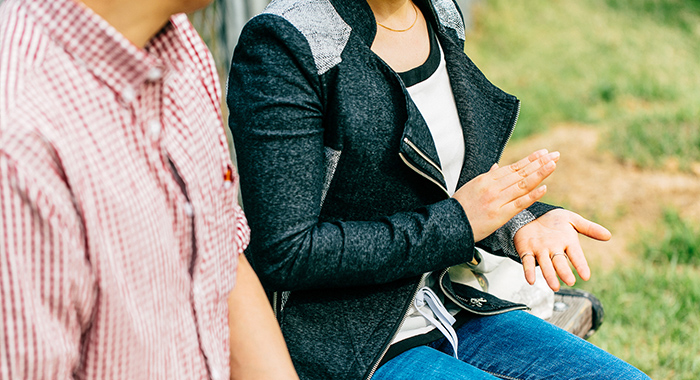
Jihyun: How do you want people in the world to see North Korea and the North Korean people?
Hae Sun: I want the world to distinguish between its people and its leaders. I know that the regime is bad and has done a lot of evil things, but the ordinary people are innocent.
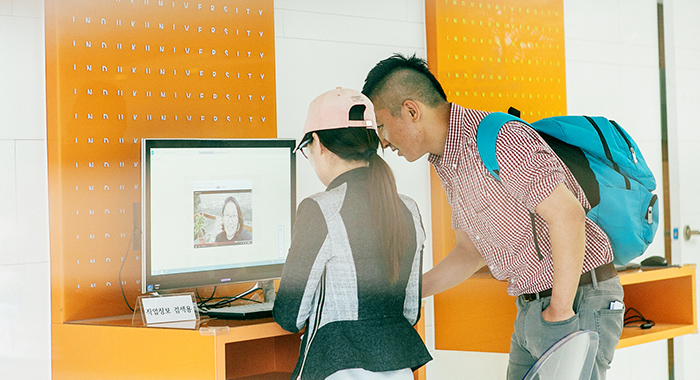
Jihyun: What is the most important value in life?
Hae Sun: Having goals to achieve. I didn’t have a lot of goals until I came to South Korea. After escaping in my early 20s, I didn’t have any goals other than just surviving and not getting repatriated back to North Korea...I didn’t even want to live a long life. I just wanted to live until I turned 30. But now, I want to live for a long time because I have a lot of goals to achieve.
I would feel so sad if I only lived until I turned 30 now. That is not enough time to do all the things I want to do.
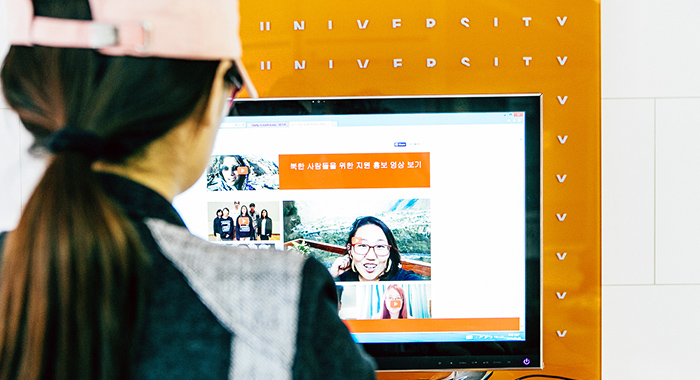
Jihyun: What are your future goals?
Hae Sun: I always wanted to go to college in North Korea and China, but it was not possible due to my social status and other obstacles in those countries. I am living that dream by attending college with a major I really enjoy studying. Now my goal for the future is to successfully finish college and get a job I am passionate about. I don’t know what kind of job I want yet, but I know I will find one if I keep doing my best in college.
You can help other North Korean refugees escape China and resettle successfully by donating to our work. Donate now.
My Name Is Loh Kiwan | Fictional Story, Real Lives
From a crumpled piece of paper, he copies his name onto the Application for Recognition of Refugee status. The letters flow together in neat, sloping script to spell–Loh Kiwan.
This seemingly mundane declaration of identity serves as the focal point of Netflix’s recently released movie, My Name is Loh Kiwan. Showcasing the titular character’s past and present struggles as a North Korean defector seeking asylum in Belgium, the film follows Kiwan’s journey through both hope and heartbreak while he fights for a new life in freedom. He shows unimaginable resilience in the face of tragedy, betrayal, and bureaucratic apathy, carving out a place where he can live as himself, for himself.

Though based on a fictional novel, Loh Kiwan’s story captures the real life experiences of many North Korean refugees. Whether it be the harrowing circumstances of his escape, the subsequent challenges Kiwan faces while applying for asylum, or even the emotional turmoil of contending with his trauma, My Name is Loh Kiwan derives its drama from reality when depicting the struggles of North Korean defectors.
Uprooted by an act of defiance that saves his friend’s life, Kiwan and his mother escape across the border to China and live there under constant threat of arrest and forced repatriation. With no legal status as refugees and no legal options for leaving the country without government approval, North Korean defectors in China are exceptionally vulnerable to trafficking and exploitation. They live in the shadows, concealing their identities as best they can, despite cultural and language barriers. If captured and returned to their home country, they are subject to brutal torture, imprisonment, and execution. Rather than face such inhumanity, many see suicide as a final escape and carry poison or razor blades with them, much like Kiwan and his mother.
It is ultimately his mother’s sacrifice that saves Kiwan from such a fate. Her death forces him into a position nearly every North Korean refugee recognizes–having to leave behind friends, family, and loved ones with aborted goodbyes for the sake of everyone’s safety and survival. Kiwan’s only material connection to his mother is a photo and a wallet full of blood. In reality, most leave with even less than that.
Not wanting to incriminate the people close to them if they are caught trying to escape, most North Korean refugees forgo any identifying documents or proof of their existence. They take only the bare essentials for survival, not knowing that their arrival in a new country is only the beginning of their journey, or even if they'll make it.
But this is not the narrative Liberty in North Korea believes in. No North Korean person should have to endure the struggles or celebrate the successes of resettlement alone. Much like the assistance Kiwan later receives from an advocacy group that offers legal support and a community of other North Koreans, LiNK walks with our North Korean friends on their journey to freedom. And when they begin new lives, we support their success, amplify their voices, cultivate more leaders and changemakers working on this issue together.
In this, Kiwan’s story reflects yet another reality of the North Korean people. Not only do they encounter extraordinary hardships, but also, they face them with extraordinary strength. Throughout the film, Kiwan persists in his pursuit of an earnest, honest life. Despite setbacks and situations where he’s forced into hurt or hiding, he stays true to his mother’s wish for him to live well, and in doing so, inspires the people around him to do the same.

He finds hope, love, and freedom in others, but most importantly, in himself. When placed on trial to prove his identity before the court, Loh Kiwan proclaims the name his mother gave him.
Owning one’s identity as a North Korean person is not always easy. From the start of their escape, they are forced to hide. Once they reach freedom, the stigma and prejudice people hold towards their homeland pressures many to erase their accent or change their name–sometimes as a form of self-protection, other times as a way to fit in.
What Kiwan’s story shows, however, is that there is hope at the end of hiding. There is beauty in the simple, everyday life he longs for–a life where he can work for himself and share meals with friends, have a home, have a future, and have the choice to stay or go.
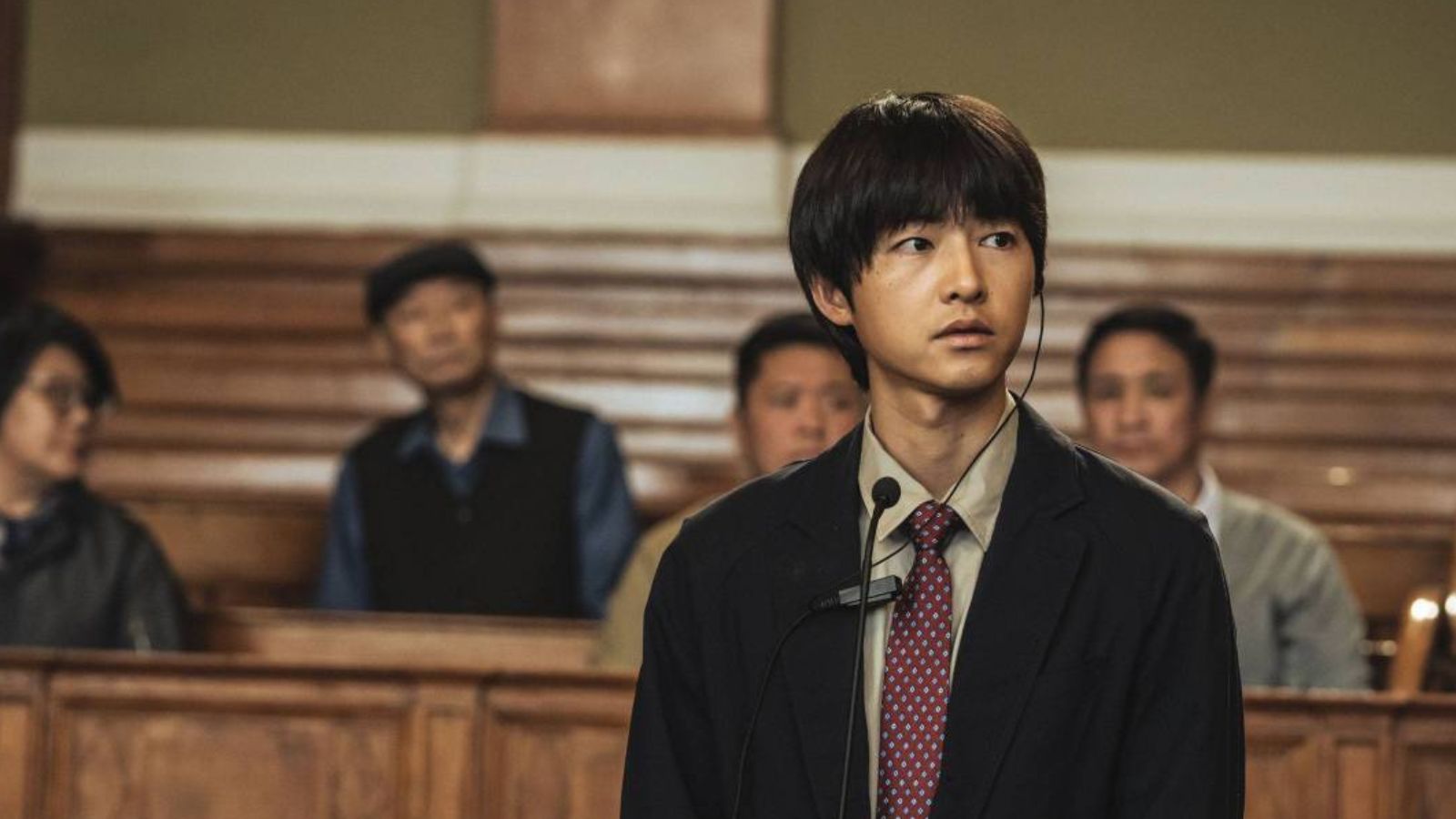
This is the life the North Korean people deserve, and every day, both within the country and without, they fight towards a better future. Their courage and indomitable spirit are not just figments of fiction. With your help, their freedom will become a reality.
Sign up below to learn how YOU can help support North Korean refugees today.




